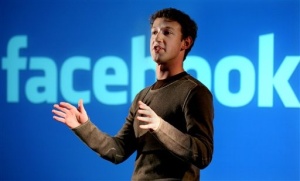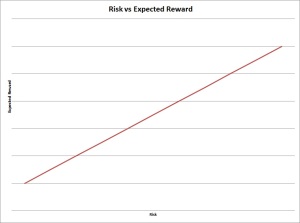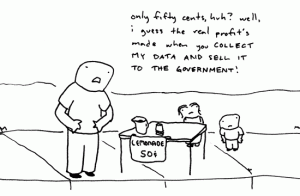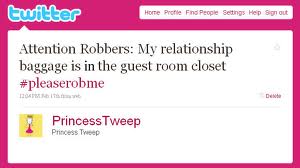Yeah, we’re trying this new thing with Social Media…we just don’t want it to be TOO social.
Recently, a tremendous amount of talk within the universe of Digital Media, particularly from those new or unused to the concept, has revolved around the issues of safety and privacy online. The topic becomes particularly intriguing when you look at it as a tug-of-war of sorts between safety-conscious consumers and idealistic social media big-wigs. Giant corporations, both publically and privately held, like Google and Facebook are following their convictions with their end-game as a fully-integrated “social web”. Consumers, on the other hand, without time to read about safety precautions and the implications of the data they’re providing, can’t help but feel distorted and mislead by the “new” internet. Facebook CEO Mark Zuckerberg, arguably one of the more powerful people around these days has said,” In reality, we wouldn’t share your information in a way you wouldn’t want … The trust you place in us as a safe place to share information is the most important part of what makes Facebook work.” My first thought in response to that statement: Is Mr. Zuckerberg brilliant and honest, lying and manipulative, or just plain disillusioned. There really isn’t much middle ground.
Internet savvy journalists and bloggers like to think that the internet is redefining the rules of privacy on its own terms, whereas that simply isn’t the case. Writer Sam Lessin for Brandweek said in a recent article,” The notion of privacy rests on two pillars—trust and transparency—and the Web has not changed that.“ Instead of changing the foundation of privacy, the web 2.0 revolution has simply changed the cost-benefit ratio of sharing your information online. Prior to social media, little was to be gained from sharing information- whether private or prose, whereas now a small-time blogger with brilliant syntax or a garage band with more talent than anyone on your favorite radio station can rise mercurially without the aid of PR agencies, record labels, or publishers. What’s more difficult than being discovered these days, is not being discovered. Later in the same article, Sam Lessin added what to me was a striking revelation, writing, “For all of human history it’s been more pricey to share information widely than privately; now, the reverse is true.“
Uniting the world under Social Platforms like Twitter, where Kanye West publicly apologizes to Taylor Swift on the same platform teenage girls use to gossip about movies, is more of an embodiment of the American dream than we’ve witnessed in quite some time. Even politics, a field that has hid behind both pillars of red tape and privacy for decades, has dusted off the old-fashioned soap box, with even older Politicians like John McCain jumping on the digital bandwagon to better communicate with their constituents. You know where your friends are and can meet-up through Foursquare, can keep track of friends and family on Facebook, promote your band on Myspace, and hone your rhetoric with a WordPress blog. The world is at your fingertips, but wait for a second….before you become too famous, I remember something about skepticism.
To start, I’d like to quote two voices of this revolution whose attitudes may not sit so easily with your psyche. A few years ago, in what now seems more prophetic than matter-of-fact, Sun Microsystems CEO Scott McNealy spoke in front of a conclave announcing that we’d need to trade in privacy to participate in the fast-developing online world, and that consumers should “get over it.” More recently, in light of implications reaching all the way to the Supreme Court, Facebook CEO Mark Zuckerberg justified his initiatives towards an integrated internet by saying that,” Privacy is no longer a social norm.”
Is he right?
While countless people have complained about their “private” information that they posted on a “social networking” site being “shared socially”, Zuckerberg claims that very few of those people have left or even spent less time on Facebook. Quite the contrary, the pulpit of choice for many of these dissenters is social media itself! (Oh the irony!)
Now, to address that elephant in the room, it’s patently true that you can get burned through Social Media. Like they say,” No risk, no reward” or even more fitting “even the best laid plans of mice and men often go array.” Social Media is, by nature, uncontrollable, unpredictable, and unnerving. The internet is, increasingly, becoming an open forum. Noticed those like buttons on every website? Yeah, that should tell you something. Any secrets and dirty laundry you have should probably not be aired on anything with the word “social” in it; however, that seems to be less intuitive to the younger generations these days. To continue with the parade of colloquialisms, “You can’t have your cake and eat it too.” Social Media is a land of great opportunity and great risk.
In summary, Social Media is social, privacy is no longer a societal norm, nobody in the digital world is worried about hurting your feelings, and the benefits are astronomical. That about clear it up?
To espouse my opinion (you didn’t think I’d stay objective did you?), Social Media is a great thing. It will, in the end, give the little guy a voice and create high-margin, low-risk advertising opportunities when used correctly. I can’t promise you won’t have your identity stolen and I can’t promise that some crazy stalker won’t take a vested interest in your Foursquare account; however, I can say why these things are unlikely:
- From a marketing standpoint, we don’t want your credit card. We don’t want your social security or bank routing number, either. Ever wonder where all that data you submit to sign up for ridiculous subscriptions goes? It goes into massive consumer databases that are used for demographic research. So yes, from time to time your email address might get sold but it’s because the company buying it believes that you’re the kind of person that would be interested in your product.
- Targeted marketing is simply delivering you the message you probably want anyway, while only slightly and unknowingly (to most) erring on the side of shady.
- As for the horror stories about geo-location services resulting in break-ins and robberies- Do a lot of common criminals really use Foursquare? Is it really that difficult to tell when nobody’s home- particularly when people’s work schedules tend to be 9-5 Monday-Friday? The worry over location-based services and Social Media is probably unmerited, though the danger is undoubtedly feasible.
We’re entering a bold and unfamiliar new world where, though we have every opportunity to opt-out, ease, efficiency, and excitement are being offered in return for a bit of your safety. No one can assure your protection, so it all comes down, just like it always has, to risk preference. So are you in or out? Money under the mattress or in high yield stocks? I’ll tell you one thing- I’m in.






Sorry about a few punctuation errors in the original post, they all should be corrected now.